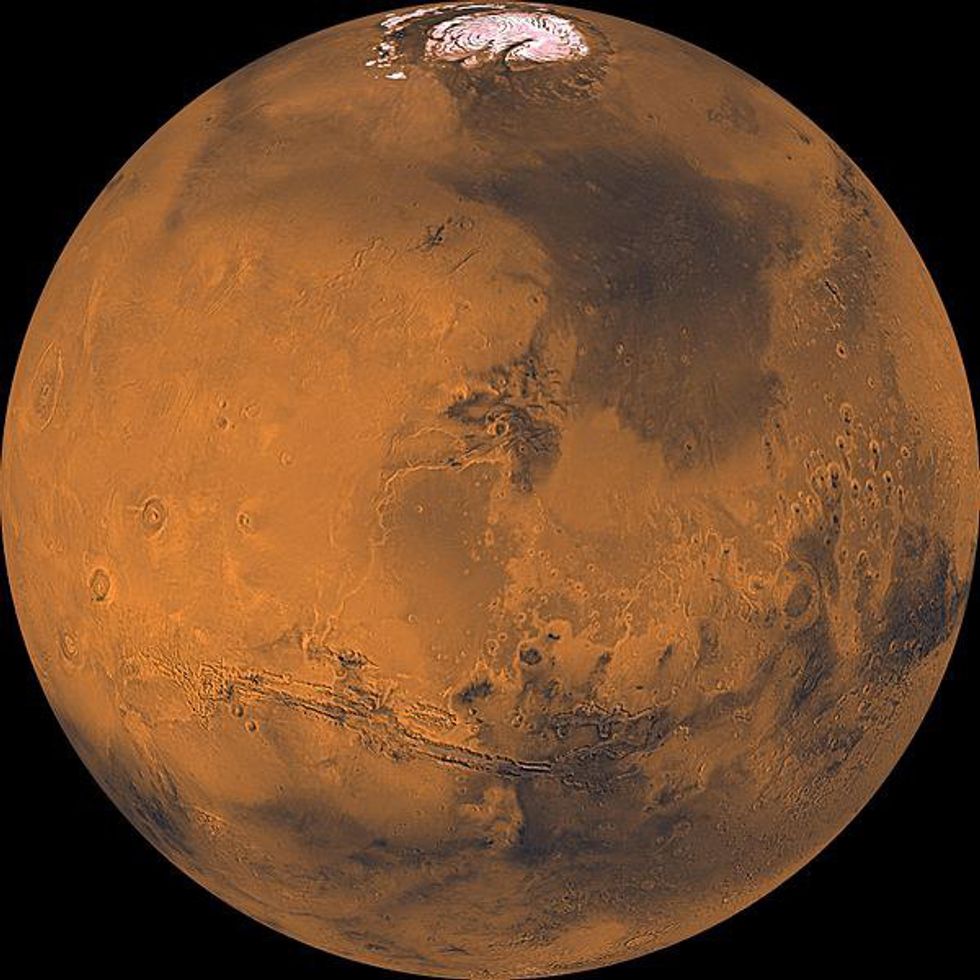If you haven't heard of the hit book The Martian or movie based off of it under the same name, then you're welcome. But odds are you have. Why? Because it's been taking not just the nation - but the world by storm. People are surprised. Is it sci-fi? Why is it listed as comedy? Where did this book come from? While no one questions The Martian's ability to engage a room full of movie goers or a person that even slightly likes sci-fi novels, why it's become so increasingly popular with the masses some people don't exactly understand. After all, the book (and movie) are rather typical of what you would expect a sci-fi plot to be - a space mission that the human race at this point in time cannot yet accomplish. So what's the big deal? Why are so many people who aren't science/math people or self-proclaimed space nerds flocking to see this story on the big screen? I'll tell you.
In case you're a lazy bum and haven't gotten the chance to even watch the trailer for the movie, here it is, so you can understand the awesome I'm about to explain.
Naturally, when you have a story premise such as this, there are countless scientific opportunities to be inaccurate. The weather on Mars, the spaceship for the astronauts, growing food, making water, every single piece of technology, and every single bit of math, so despite how good the movie or book might be in terms of plot, character, and conflict, many enthusiasts of science or math often don't see the magic of the story anymore, simply because they know too much information on the subjects brought up.
Part of what makes The Martian (book and movie) so special is the work that went behind the science and math. And that's all thanks to the person that created the story in the first place and the filmmakers who did their best to accurately portray this story on screen.
Andy Weir, author of The Martian and self-proclaimed nerd, writes in the article How Science Made Me a Writer, "One day, in between doing highly charismatic non-nerdy things, I started working up a manned Mars mission in my head. I even wrote my own software to calculate the orbital trajectory my imaginary crew would take to get from Earth to Mars." Needless to say, due to the great detail behind the math and science the author provided, not just behind the scenes but in the book as well - fear not non-math/science people, he simplifies it enough so that people like you and I can understand - the filmmakers had a standard to uphold.
As written in this article by Eric Betz, Behind the Science of The Martian, Arthur Max, the set designer for the crew, took trips to the Jet Propulsion Laboratory in Pasadena and the Johnson Space center in Houston and began working closely with Jim Green, NASA's planetary science program head who also served as the consultant for this movie. Some of NASA's astronauts were also made available to the cast of the movie. Everyone involved in putting this story on screen, did the necessary research.

So, what were those problems that he didn't fix? This article spells it out. For starters, the dust storm at the beginning of the novel. Due to the gravity on Mars, the winds wouldn't be that powerful to cause that much damage, but Weir knowingly kept this inaccuracy, because he wanted that in the book, and I honestly can't think of another way that would leave an astronaut stranded and everything else needed to survive still functional.
Radiation exposure on Mars was another big factor. On Mars humans would be exposed to more, so the possibilities for cancer would be much greater. If people ever make it to Mars, the dwellings in which people live in would have to be underground, as explained in this article, though it also admits that it is likely our stranded astronaut would not have had any side effects of the radiation during his stay on Mars, so I still call that a win for the accuracies.
After that, the inaccuracies spelled out in this article come from us actually currently not being able to get to Mars and come back with the fuel and the issue with gravity during take off. The last accuracy problem came from the movie specifically, in the actor's portrayal of walking on Mars. Its gravity has less of a pull than that of Earth, and so walking would look different. Though I'd like to point out that because we have not been able to set foot on Mars we don't know exactly what it would look like in any event, because it has more than the Moon's pull, so we have a pretty large buffer to draw from. For aesthetic purposes and for the sake of the actors, I'm okay with this inaccuracy of the movie. In the book, however, it can be argued that it's not inaccurate in this way, because Weir specifically writes the challenges of walking on Mars in a heavy space suit, even when dealing with less of a gravitational pull.
Aside from the fact that the story itself is scientifically accurate, which helps our science/math enthusiasts sleep at night, this book also has humor that was expertly portrayed by the cast of the film.
For those of us that think critically and analytically about films (on purpose or not), it asks huge questions of human nature. To what extent can we be selfless? How many resources will we deplete ourselves of to save a single human life? What is the value of a human life? This story begs those questions.
So, as you can see, The Martian has something for everyone. Comedy, food-for-thought questions, and accurate science and math. What's not to love?
I'll tell you. Nothing. There is nothing you can not love about this book or movie. So go read it or watch it (preferably both) now. Go on. Shoo.






















